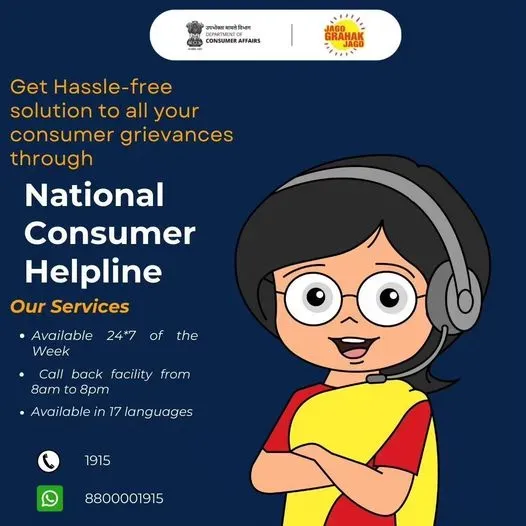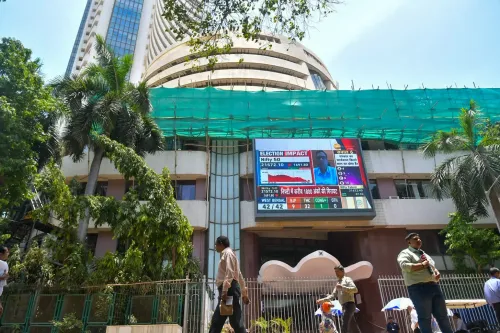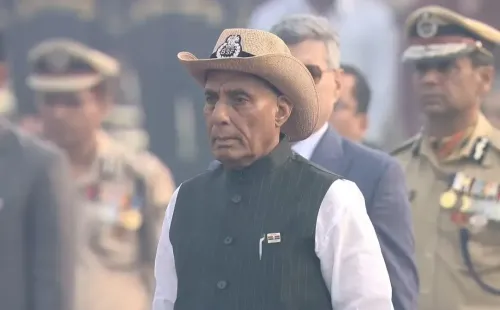Are E-commerce Companies Selling Fake Goods? Over 7,200 Complaints Filed in First Half of 2024

Synopsis
Key Takeaways
- 7,221 complaints recorded in 6 months regarding counterfeit products.
- The role of Bureau of Indian Standards in conducting search and seizure operations.
- Introduction of Consumer Protection (E-commerce) Rules, 2020.
- Commitment from major e-commerce firms to ensure consumer safety.
- Guidelines issued by CCPA to tackle dark patterns in the marketplace.
New Delhi, Aug 6 (NationPress) A staggering 7,221 complaints concerning the sale of substandard, counterfeit, and imitation products within the e-commerce industry have been logged with the National Consumer Helpline during the first half of this year. This marks a significant increase from 4,997 complaints recorded throughout the entire year of 2024, as reported to Parliament on Wednesday.
In the fiscal year 2024-25, the Bureau of Indian Standards (BIS) has executed 22 search and seizure operations targeting warehouses affiliated with e-commerce platforms. These operations included three each in the states of Delhi, Haryana, Karnataka, and Maharashtra; two each in Rajasthan and Tamil Nadu; and one each in Gujarat, Odisha, Telangana, Uttar Pradesh, Andhra Pradesh, and Uttarakhand, according to Minister of State for Consumer Affairs, B.L. Verma, in a written reply to the Lok Sabha.
The minister highlighted that to protect consumers from unfair trading practices in the e-commerce domain, the Department of Consumer Affairs has enacted the Consumer Protection (E-commerce) Rules, 2020. These regulations delineate the obligations of e-commerce entities and define the liabilities of both marketplace and inventory-based e-commerce firms, including mechanisms for consumer grievance resolutions.
According to these regulations, e-commerce platforms are prohibited from manipulating product prices unfairly to extract excessive profits from consumers, taking into account the current market conditions.
Moreover, these regulations prevent entities from discriminating between consumers of the same classification or creating arbitrary classifications that could undermine consumer rights under the Act.
Furthermore, e-commerce firms are prohibited from engaging in any unfair trade practices, whether conducted on their platforms or otherwise.
On National Consumer Day 2024, 13 prominent e-commerce companies, such as Reliance Retail, Tata Sons Group, Zomato, Ola, and Swiggy, committed to a “safety pledge” developed by the Department to enhance consumer safety.
The Central Consumer Protection Authority (CCPA) has been established to mitigate consumer harm stemming from unfair trade practices and to initiate class actions, including enforcing recalls, refunds, and product returns. Its primary mission is to prevent and regulate misleading advertisements that could harm public interest.
The CCPA has also published “Guidelines for Prevention and Regulation of Dark Patterns, 2023,” which identify 13 specific dark patterns prevalent in the e-commerce sector, such as false urgency, basket sneaking, confirm shaming, forced action, subscription traps, interface interference, bait and switch tactics, drip pricing, disguised advertisements, nagging, trick wording, SaaS billing, and rogue malware.
On June 5, the CCPA issued an advisory under the Consumer Protection Act, 2019 regarding self-audits by e-commerce platforms to identify dark patterns and foster a fair, ethical, and consumer-centric digital landscape.
Additionally, the CCPA has released guidelines aimed at preventing misleading advertisements and endorsements. These guidelines outline criteria for advertisements to be deemed non-misleading and valid, stipulations regarding bait and free claim advertisements, and the responsibilities of manufacturers, service providers, advertisers, and advertising agencies, as noted by the minister.
Actions are being pursued by the CCPA against various entities, including e-commerce platforms, for violating consumer rights, disseminating false and misleading advertisements, and engaging in unfair trade practices as defined by the Consumer Protection Act, 2019.









